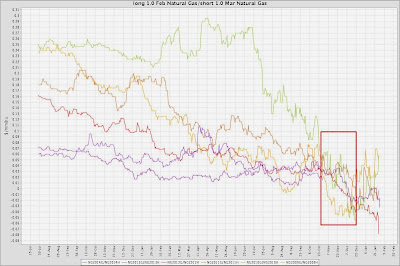Post
inspired in a comment of user magno11
in financial portal www.rankia.com.
In
a previous post we mentioned a style of investing called Contrarian
Investing.
According
to the definition in Wikipedia, Contrarian Investing is “In
finance, a contrarian is one who attempts to
profit by investing in a manner that differs from the conventional
wisdom, when the consensus opinion appears to be wrong.“
In
this post, rather than explaining it in detail, we will try to follow
a contrarian analysis to find a good investment. You can find plenty of web and book resources about Contrarian Investing.
So,
let's try it.
First
of all, look at a market that normal investor never would go at this
moment, what about South Euro area, Italy, Portugal, Spain, Greece,
Cyprus...
So,
maybe the next in bad state is Greece, and what do we have in that
market?? Well, the overall index has not done bad this year, but it
includes all risks, so lets look at some good companies in it, mostly
those undervalued...
To
not bore you with long analysis, I propose to analyze directly one
of the sectors with bad reputation, which normally are those
that perform better..., in this case, a tobacco company, Karelia Tobacoo, KARE:ATH.
This
company's last closing price was 145.05
€, but, according to some it may be 50% undervalued, that is, it
may reach, in 2 – 3 years time, double price.., let's see the data:
This
company exports 80% of its production, (15 billion cigarrettes), that
means that, in the worst case of Greece exiting the euro, costs will do
down (currency devaluation), increasing profits.
In
Greece it has 10% marketshare, (3 billion cigarrettes), but it is a leader
in Bulgaria, 20% and it is performing an active international
expansion.
In
2009 they started launching new products and expanding in duty-free
markets. Earns per share rose 16% in last 5 years with 10% increase
in sales.
In
2004 it sold 15 billion cigarettes, the same amount as in 2009, however
operating profit went up 30%, but transferring increases in taxes and
inflation to the final price.
Getting
more market share in other countries is a very good signal, because
normally tobacco consumers have a lot of fidelity to their brands..
Company Valuation
Analyzing
the enterprise value,
as market cap + debt – cash, that is 420M – 150M, that is, 120
million euros.
EBIT =
56 M.
Free
cash flow = EBIT – capex
EV/EBIT = 4.2 x
pret-tax
EV/FCF =
4.3 x pre-tax
ROTE, Return on
tangible equity =56/260-60-150+70=46% pre.tax
EBIT margin
= 9%
ROIC=56/236=23% pretax
If we compare this numbers with similar companies, for example
Imperial Tobacco, it has a ROTE, of 31%, (just 25% including
goodwill).
EV/ebit = 11.3 x, that is 3 times Karelia Tobacco.
Analysing the stock price, it shows a clear primary trend up, since 2012.
Moreover, this company has given its employees 1.8 Million € in bonus last december, from 400 to 1400€ extra depending on family charges per employee.., which shows an economically healthy company with motivated employees.
And last but no least, new limits in tobacco advertising is good
for small companies, because it reduces the gap between big
companies, that can spend huge amounts in TV ads, and small ones.
So, if everything sounds that good, why is the share so cheap..
Risks
Of course, there are risks, but a good analysis of them will be
the key to a good contrarian investment. What are those risks?
Well, these days, anything with the word Greece in it is considered as a bad investment. Basically, the media do not use to publish subtle
details...
There is also a risk of task increasing on tobacco, but we have seen in the past that this the cost can normally be transferred to the final price, how much before people leave smoking?.
The management team is a family, Karelia family, and normally funds do
not like family-managed companies, however, in 2009, when many strategic decisions had to be taken, they did really well.
Another risk is the little free float, just 150.000 shares out of 2.76
million in total.
And, one strange thing, the big amount of 120 million € of cash
with 400 million € of market capitalization. Why did they not buy
shares back in 2012 with PER was 4???
So, what must happen for the stock to double price??
Triggers
The company looks very good, could it be bought by another (big)
one??
Maybe, spending those free 120M in dividends, or buying shares
back???
Maybe a big hedge fund does same calculations or reads this post
and buys all free float shares???
These things are not likely to happen, but just simple expected growth may produce a very good return.
Finally, here 3 possible growth scenarios in the next 4 years:
1.- Share price 202€, 7% yield in 4 years.
2.- Share price 354€, 24% yield in 4 years.
3.- Share price 489€, 34% yield in 4 years.
As a disclosure, please do not consider all these as a buy/sell recommendation, it is my first approach to Greek markets, and it would require deeper analysis and, even better, some local information about this company in Greece.
This exercise is just an example, how to find jewels dismissed by the media, and so by the crowd.., in countries, sectors or companies that the crowd dismisses.., and there is where money can be made.















 Investment philosophy
based on
Investment philosophy
based on 























